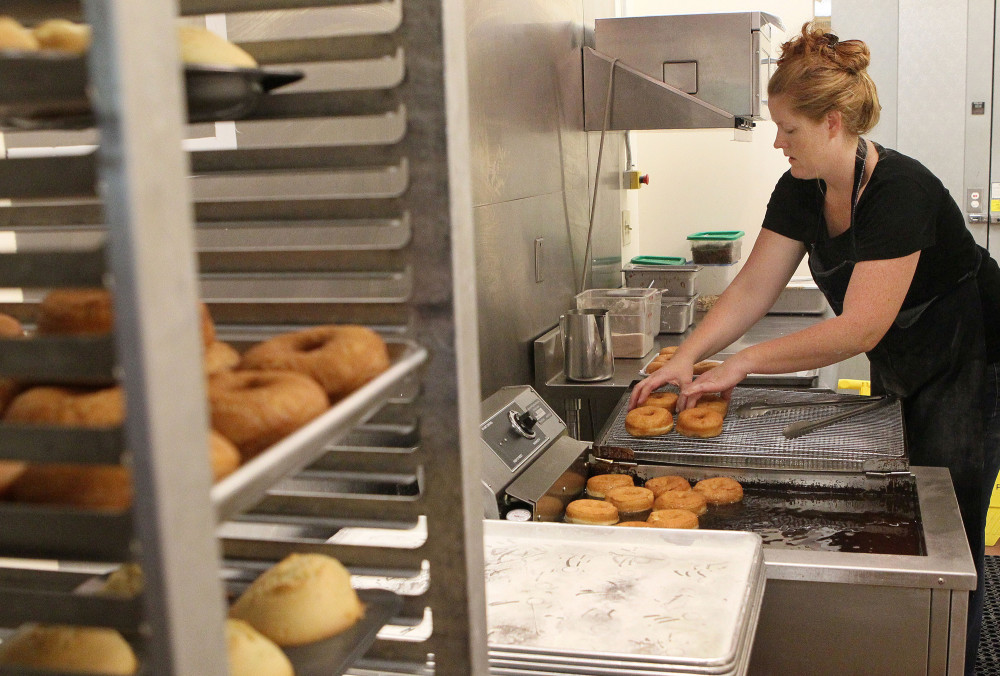By Neil Senturia
The San Diego Union-Tribune
WWR Article Summary (tl;dr) Wharton professor Barbara Mellers and doctoral student Ike Silver pose the question “under what conditions does discussion really help people’s judgment?”
The San Diego Union-Tribune
Everyone knows the theory behind the wisdom of crowds — namely that pooling judgments from multiple individuals can lead to greater accuracy — is often exhibited when you try to guess how many jelly beans are in the jar. Ask 500 people and no one gets it exactly right, but take the average of the 500, and the number tends to be spot on.
Wharton professor Barbara Mellers and doctoral student Ike Silver have some thoughts on what should be the appropriate composition of the “crowd,” as well as normalizing for its potential for overconfidence.
They say that if the leader of the group is truly knowledgeable, then collaboration works well, but if the person doing most of the talking has his head in a unique configuration, then the likelihood of getting it dramatically wrong is dramatically increased.
On the other hand, if you let the group talk to each other first, without a leader, then “their errors can become correlated,” which is a fancy way of saying that in that case, groupthink tends to take over, amplified by conformity pressures.
The question that Mellers sets up to solve is “under what conditions does discussion really help people’s judgment?” They tried to understand the “confidence calibration,” which is a way of measuring the nexus between confidence and accuracy. Remember the famous phrase attributed to many CEOs, “Often wrong, but never in doubt.”
Silver says, “There’s something about talking to other people that makes you really feel like you’re getting smarter.” Now let’s be careful here. On the one hand, it is true that a great group thinking hard and true might find the diamond in the rough, but by the same token, the idea that you actually got smarter, that your IQ increased, is, of course, an illusion. But they argue that feeling smarter does allow you to be more inclusive of the other opinions being voiced.
However, just because the group is talking and coming to a confident consensus does not mean it got the right answer. Maybe the loudest dissident in the group truly is more knowledgeable. He might be disagreeable, but he also might be right. And the mitigating behavior he needs is to demonstrate is self-awareness and reasonable humility to balance the risk of potential arrogance and overconfidence.
The quality that I look for in a leader is the willingness (and to some extent eagerness) to change their mind — to change not only when confronted with compelling alternate facts, but to be comfortable continually challenging themselves, seeing if they can find the hidden flaw in their reasoning, to continually test and tease the pieces of the puzzle — and to not be afraid to look weak or small by juggling multiple possibilities. They can’t all be right all the time, keep testing.
The challenge for the leader is to find a way to have an “effective discussion” and that starts with assembling the right group to do the talking and thinking. Within that subset is the requirement that confidence and conclusion do not walk in the door initially; rather they emerge and increase as the group gets smarter. The CEO can elect to stay out of the discussion, aggregate the input from several groups and then make the ultimate decision alone. Sort of like the jelly beans in the jar.
I have been thinking hard this year on good decision-making and several of my columns have touched on this theme. The good leader is equally skeptical and agile. Change, of course, is not a weakness — if it is the right course.
I am constantly asking myself, what did I miss, what is the unintended consequence that has been overlooked or discounted?
Mellers and Silver both stress that the one key critical component that must exist in the discussion model is the need for trust. The participants must trust each other and trust that the group will act in the best interests of solving the problem and that individuals will not act in their own personal best self-interests.
In the end, reaching the right decision always remains a balancing act: The wisdom of crowds, on the one hand, the loud domain expert with certainty, on the other. Imagine the possibilities if the CEO had a third hand.
Neil Senturia, a serial entrepreneur who invests in early-stage technology companies, writes weekly about entrepreneurship in San Diego. Please email ideas to Neil at neil@blackbirdv.com.
___
Distributed by Tribune Content Agency, LLC.

















































































































































































































































































































































































